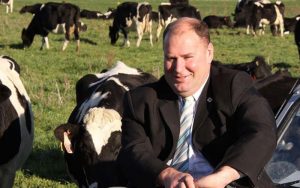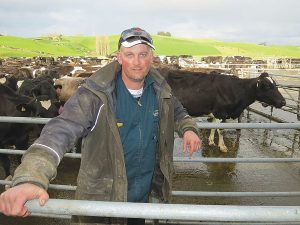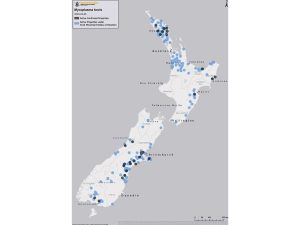
Stock will need to be reduced on nearby and high-risk farms, it said.
Eight farms in the high-risk area will be depopulated; six farms in the at-risk area will undergo increased testing.
In May, the government announced that after working to rid New Zealand of the disease, the feedlot was the only infected property remaining.
But since then two more properties have tested positive.
The Five Star Beef feedlot in Ashburton, owned by ANZCO Foods, farms about 14,000 cattle.
Culling will begin on the feedlot in mid-October and nearby farms must be “depopulated” by mid-January, MPI said.
The M bovis bacteria affects cows but has no impact on human health. The disease can also get into the udder, and cows can pass it on to calves through their milk.
In calves, it can cause pneumonia and is difficult to treat, while in fully-grown animals it can cause mastitis and arthritis.
M bovis was first found on a farm in south Canterbury in 2017, but was spreading on farms before that. The Ministry for Primary Industries believes it may have arrived in the country in late 2015 or 2016.
The transmission route between farms was “unclear” so MPI needed to take a different approach to protect cattle and farmers, the ministry said in a statement today.
“Although we are the tail end of this outbreak, it is possible we may find other infected properties in other parts of the country in the future and so we must remain vigilant and maintain our nationwide surveillance programme,” programme director Simon Andrew said.
MPI was stepping up already tight controls in the area to make sure the infection was contained.
“We know the CAN (Controlled Area Notice) will be extremely challenging and disruptive for a small number of farmers and we will support them through this process.”
So far, nearly three million tests have been carried out and 178,000 cows culled. The cost of the programme is $588 million to the end of June.
Bulk testing to look for outbreaks had gone well and August could the first month since 2018 with no infections detected, Andrew said.

























